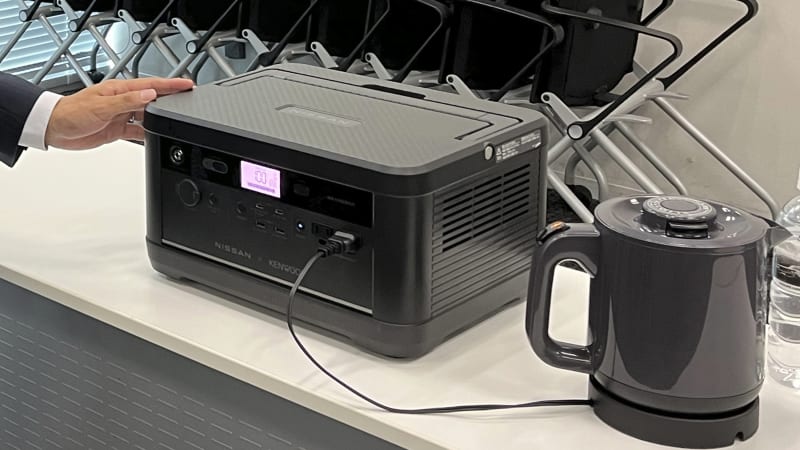Nissan is reusing batteries from old Leaf EVs to make portable power sources

Nissan’s new portable power station reuses battery stacks from the Nissan Leaf electric car. Batteries are getting a new life as portable power sources that can be used to charge gadgets on the go, rev up guitars at outdoor concerts and deliver emergency power in disasters.(AP)
YOKOHAMA, Japan — Batteries in older Nissan Leaf electric vehicles are getting a new life as portable power sources that can be used to run gadgets on the go or deliver emergency power in disasters.
Japanese automaker Nissan Motor Co. has sold more than 650,000 Leaf EVs. Their batteries often retain a charging capacity longer than the car’s life span.
Nissan says it is using the old batteries in portable power sources it developed with electronics maker JVCKenwood Corp. and 4R Energy Corp., a company co-owned by Nissan and Sumitomo Corp. which works on ecological vehicles and power storage systems.
The 14.4-kilogram (32-pound) power source sells for 170,500 yen ($1,170) in Japan. Overseas sales are not yet set.
Each Leaf uses 48 battery modules. The portable power stations contain two modules.
Nissan officials said they are testing the batteries in Leafs after their owners stop driving them, and reusing those that can still hold a charge.
EV batteries use expensive rare metals and other raw materials, and their manufacture produces carbon gases, so reusing them for other purposes helps sustainability.
Balakumar Balasingam, an associate professor of electrical and computer engineering at the University of Windsor who isn’t involved in the Nissan project, said batteries can no longer be used to drive electric cars when their charge capacity declines to about 80%, but can still be used for other purposes.
“Retired EV batteries have great potential in energy storage applications,” he said.
“Without such a solution, billions of EV battery packs will be made and then prematurely recycled in the next decade. That will be a problem for sustainability.”
Related video:







